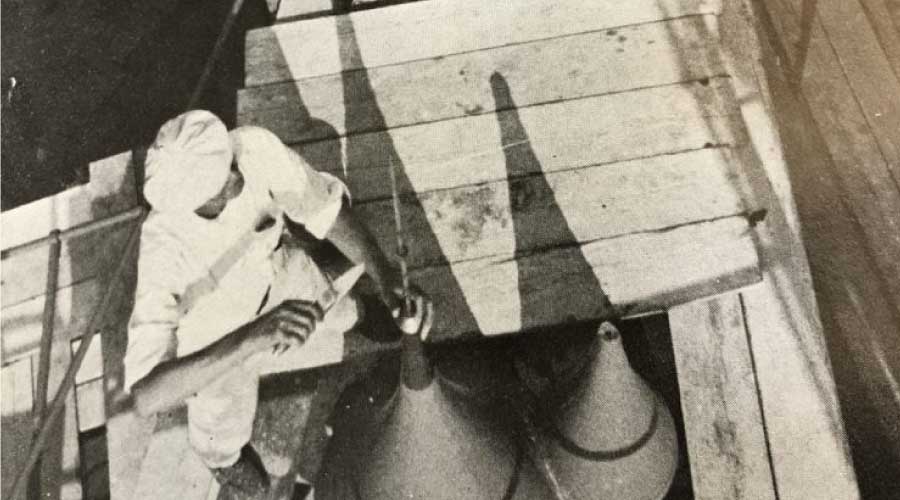How Military Veterans Can Help Fill Facilities Job Openings
As managers struggle to find candidates, veterans can offer intriguing options.
By Dave Lubach, Executive Editor
Facility managers at institutional and commercial facilities are struggling to find qualified front-line technicians to fill spots for their staff.
Like with many industries, the hiring crunch has prompted managers to consider several alternatives to the traditional job pool, including technical schools, reaching out to high school students, and veterans who have transitioned out of the military and are looking to enter the civilian job force.
In this article, we speak with Marine veteran Jay Niblick, co-founder and chief strategy officer at an online hiring platform, Wizehire, about the benefits of hiring veterans for open positions.
FacilitiesNet: In the current work atmosphere of industries of all kinds looking for quality candidates to fill positions, how has the role of recruiting veterans to positions evolved?
Niblick: Overall, the role of recruiting military veterans to fill open positions has evolved to be more targeted, supportive, and inclusive of the unique skills and experiences that veterans bring to the workforce. In recent years, there has been a growing recognition of the value that military veterans bring to the civilian workforce. As a result, the role of recruiting military veterans to fill open positions has evolved in several ways:
- Increased awareness: There is now greater awareness among employers about the benefits of hiring veterans. This includes their leadership skills, work ethic, adaptability, and ability to work in diverse teams.
- Veteran-friendly workplaces: Many employers are now making efforts to create veteran-friendly workplaces by offering flexible work arrangements, accommodating disabilities, and providing training and mentoring opportunities.
- Military skills translation: To help veterans make the transition to civilian work, employers are learning how to better translate military skills to organizational ones, which is one of the leading causes of veterans not successfully finding well-matched roles in their first year out of the service. The military services themselves have drastically improved their training to prepare transitioning veterans, though there is still much more that needs to be done.
FacilitiesNet: What kind of qualities do military veterans possess that make them ideal candidates to fill technician positions on facility crews and then ascend to leadership positions?
Niblick: Military veterans possess several valuable qualities that make them ideal candidates to fill technician positions and ultimately ascend to leadership positions in the industry.
One of the key qualities of military veterans is their strong work ethic and dedication to their tasks. They are known for being willing to work long hours and take on difficult assignments to get the job done. Veterans are also trained to work effectively in teams and often have leadership experience from their time in the military. They know how to motivate and inspire others to achieve a common goal, often in the face of significant adversity.
Additionally, veterans are often trained to think critically and creatively to solve complex problems. They have experience working in high-pressure environments and are able to remain calm and focused in challenging situations.
Finally, military training emphasizes attention to detail and following standard operating procedures, which is a valuable quality in the facilities management industry where safety and compliance are critical. Many veterans have technical skills that are directly applicable to the facilities management industry, such as experience with electrical systems, software and technology or other mechanical systems.
FacilitiesNet: What kind of advice would you give to facility managers looking to access veterans as a source for candidates?
Niblick: In general, I would say the advice is very similar to any successful recruiting campaign, with a few nuanced additions:
- Develop a targeted recruitment strategy: This may include partnering with military transition assistance programs, attending job fairs for veterans, and networking with veteran service organizations.
- Use military skills translators: Facility managers should use military skills translators to help match veterans' skills and experience to job requirements. These tools can help identify the technical and leadership skills that veterans bring to the table. Two common sites to find such resources would be careeronestop.org or military.com.
- Create a veteran-friendly workplace: To attract and retain veteran employees, facility managers should create a veteran-friendly workplace. This may include offering flexible work arrangements, accommodating disabilities, and providing training and I’m a big fan of veteran mentoring to help newly transitioned veterans adapt to the strange environment that is corporate America.
- Leverage existing veteran employees: Facility managers should leverage existing veteran employees to help recruit new candidates. These employees can serve as ambassadors for the organization and help spread the word about open positions.
Dave Lubach is the executive editor for the facilities market.
Related Topics:












